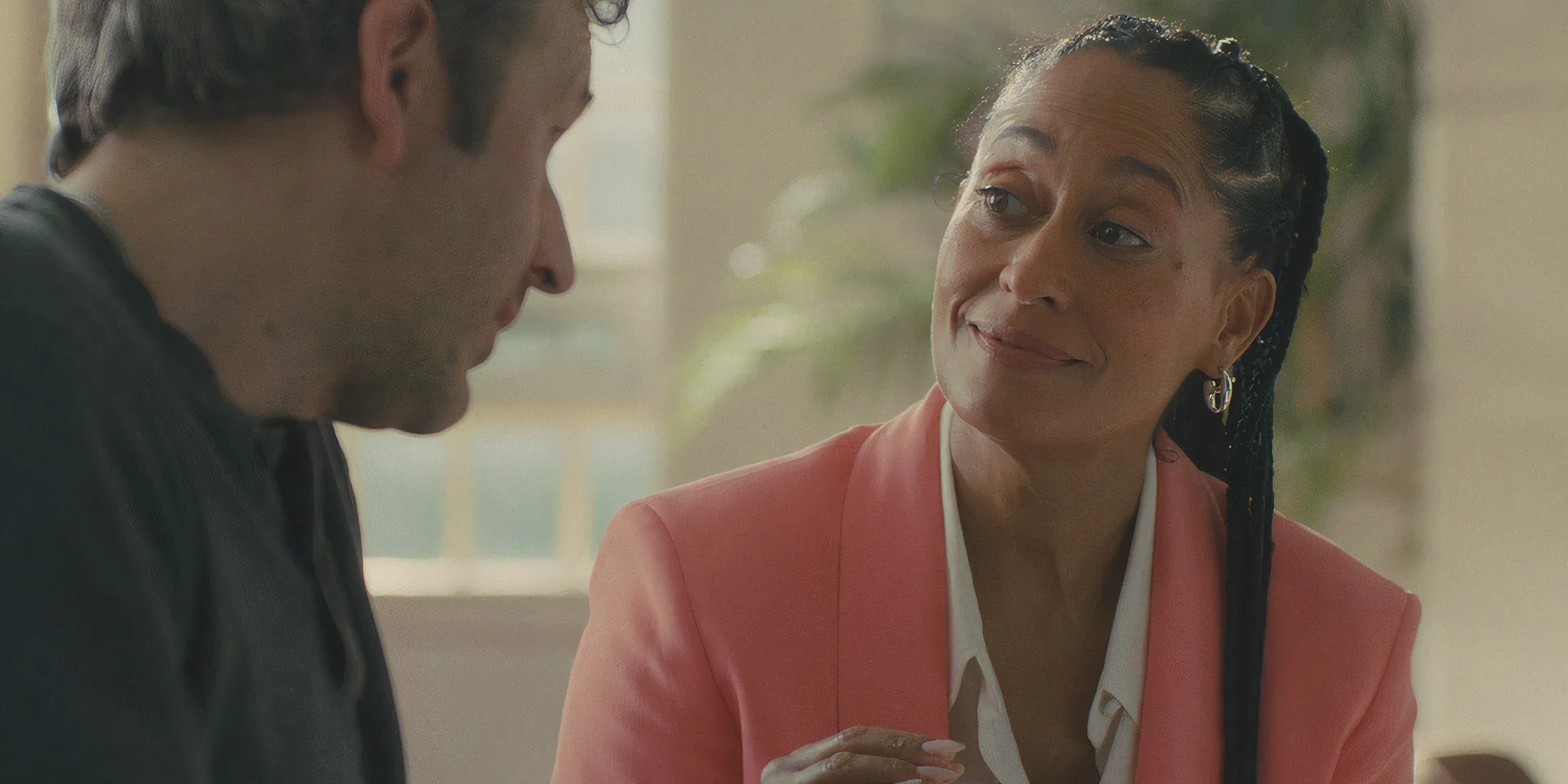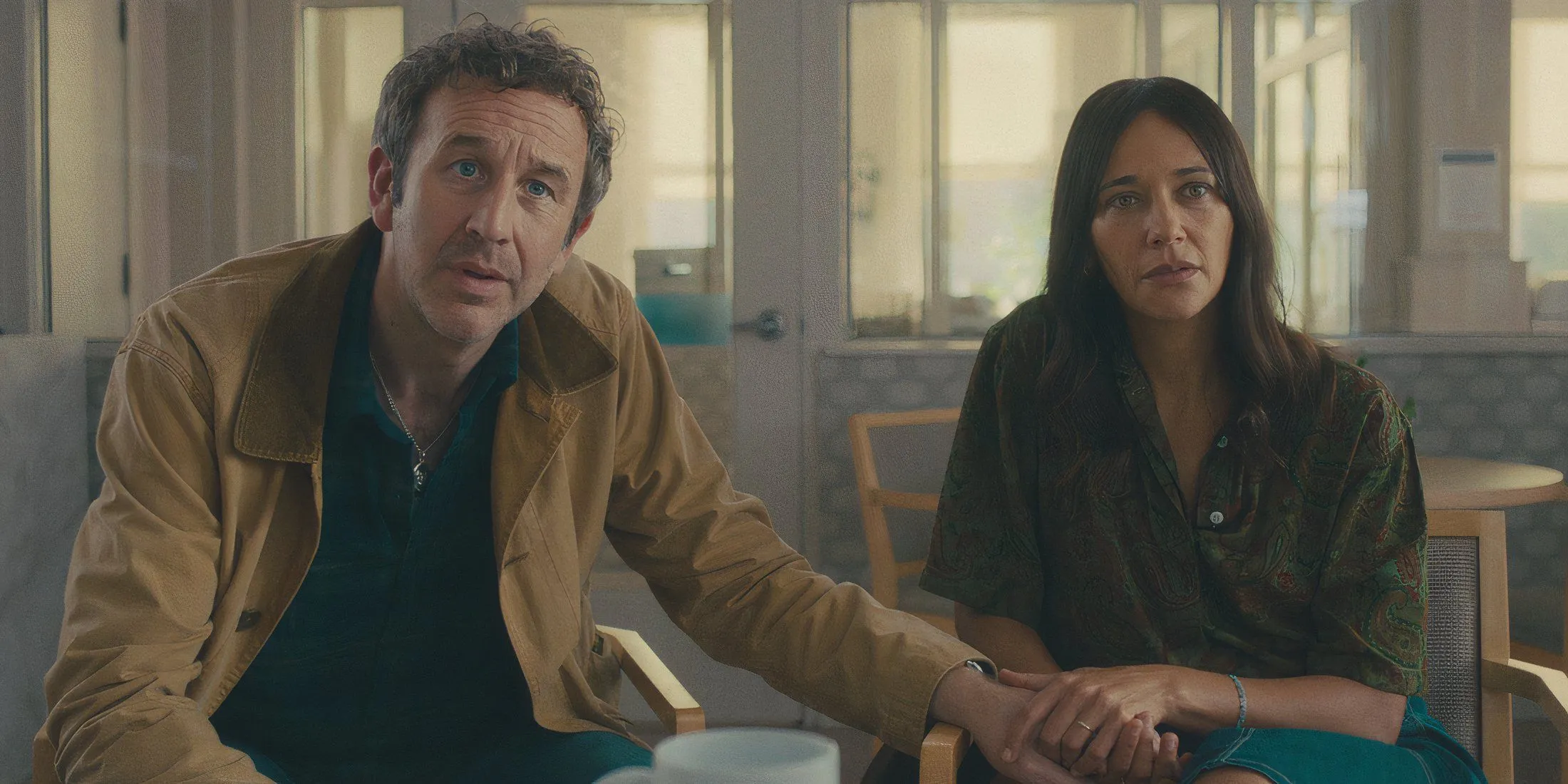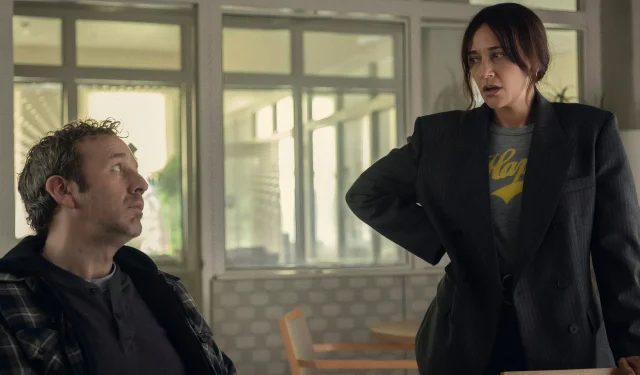Overview of Black Mirror Season 7, Episode 1
- The premiere episode, titled “Common People,”delves into the unsettling consequences of technology on human lives.
- The narrative highlights the risks linked to subscription-based services and the erosion of personal agency.
- This episode serves as a stark reminder to evaluate the true cost of leveraging technology to extend life.
The critically acclaimed series Black Mirror continues to captivate audiences by scrutinizing the interaction between humanity and technology. Rather than purely showcasing innovative applications, it often unveils an unsettling trajectory where technology becomes a double-edged sword. Season 7 introduces six fresh narratives that detail these grim implications in society, beginning with a somewhat subdued yet compelling first episode. While it establishes an engaging premise, it also sets the stage for darker themes that follow in later episodes.
The inaugural episode, “Common People,”follows Amanda (Rashida Jones) and Mike (Chris O’Dowd), a seemingly perfect couple celebrating their wedding anniversary. With careers in teaching and manufacturing, they navigate life contentedly. However, their world is disrupted by striking technological advancements, such as the use of drone pollinators—a vivid illustration of tech’s pervasiveness in everyday life.
Exploring Fears in Black Mirror Season 7: ‘Common People’

As their anniversary celebration unfolds at a charming restaurant named Juniper, Amanda and Mike reveal their desire to start a family. However, the night takes a tragic turn when Amanda experiences severe headaches that culminate in her collapsing at school the following day. Rushed to the hospital, Mike learns of a life-threatening brain clot that may end Amanda’s life. In a moment of desperation, a doctor suggests a new healthcare startup, Rivermind Technologies, promising to help Amanda utilize cutting-edge treatments.
What initially seems like a miraculous solution comes at a price—$300 a month for a subscription model—though the surgery itself is offered for free. This scenario exemplifies how tech companies often draw consumers in with the allure of “free” services, concealing the true costs of dependency that lie beneath. Rivermind Technologies symbolizes the junction where innovative healthcare solutions meet capitalism, especially at life’s most vulnerable junctures.
The juxtaposition of a heartwarming narrative with the grim realities of subscription healthcare fosters a captivating yet alarming critique of modern living. “Common People”illustrates how tech companies can masquerade care as control, enticing individuals with ostensibly benevolent offers that are, in truth, manipulative and exploitative. Consequently, essential questions regarding personal choice, authority, and the implications of our reliance on digital solutions arise. However, the episode sometimes holds back from fully embracing the horror it hints at, making its pacing feel uneven until the realization of the central issue manifests.
Imagine a person unwittingly tuned into frequency signals intended solely for machines—blurring the lines between free will and manipulative advertising. This unsettling concept is brought to life through Amanda’s plight, where the essence of autonomy begins to dissolve amid overwhelming technological influence.

The episode’s realism resonates powerfully with today’s digital landscape; many individuals find themselves pressured to purchase premium versions of services to access fundamental features. Amanda and Mike’s experience reflects this reality as sincerity spirals into a nightmarish loss of autonomy. The narrative deftly captures how Amanda eventually becomes a subject of rigorous data optimization, psychological management, and invasive surveillance—all cloaked under the guise of wellness. Her fundamental choices soon become compromised, raising the critical question: is she ‘alive’ if her essence is controlled by algorithms?
Eschewing overt gore, the episode maintains a chilling ambience through its ordinary yet disconcerting scenarios. The performances by Jones, O’Dowd, and Ross remain authentic, with O’Dowd’s portrayal of a distraught husband and Jones’s haunting interpretation of Amanda vividly illustrating the emotional turmoil. Ross’s performance stands out as she seamlessly normalizes sinister circumstances, showcasing how external appearances can be deceiving, even at such tumultuous moments.
The direction prioritizes intimate connections and deep emotional transactions over flashy effects, allowing space for quiet yet impactful moments—such as Amanda’s stillness in her hospital bed juxtaposed against their struggle against the system. The grounding nature of the writing prompts viewers to reflect on profound inquiries: Who defines true existence? At what point does caregiving transition into coercion?
Furthermore, the episode critiques the societal obsession with life preservation at any cost, pondering whether the act of “saving” an individual justifies their transformation into a commodity. Visually, the stark contrast between Amanda’s vibrant past and her present chilling confinement elevates the commentary on the perils of modern technology.
“Common People”ultimately embodies the essence of Black Mirror, interlacing speculative storytelling with raw human emotion, demonstrating how even the most foundational aspects of love and health can be weaponized by technology. This cautionary tale invites audiences to re-evaluate the essential question: what is the real price of survival when it comes at the expense of personal freedom? Although changes may not come swiftly, this episode serves as a poignant warning for those navigating similar challenges.
All episodes of Black Mirror Season 7 are currently available for streaming exclusively on Netflix.


